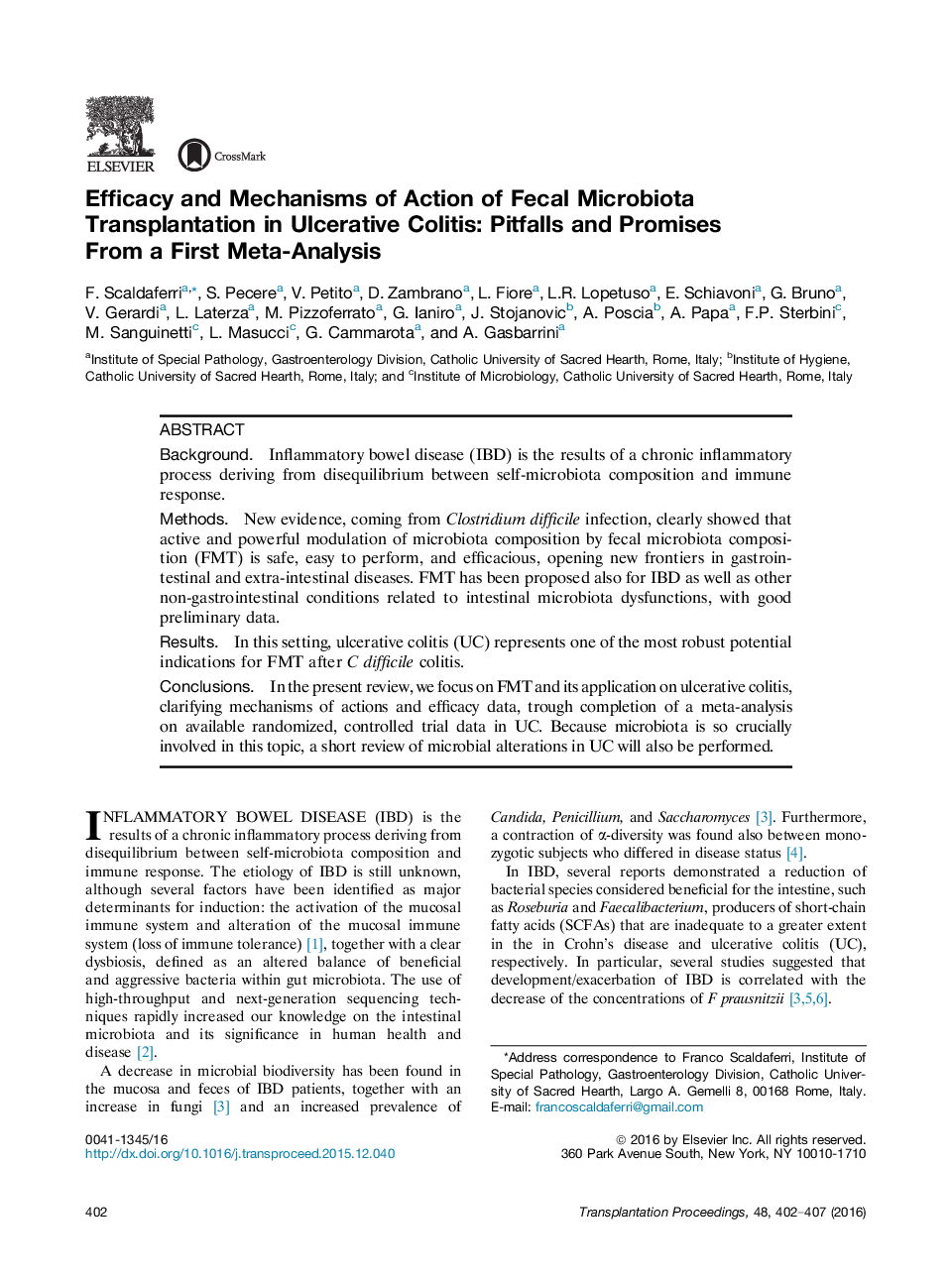| Article ID | Journal | Published Year | Pages | File Type |
|---|---|---|---|---|
| 6246905 | Transplantation Proceedings | 2016 | 6 Pages |
BackgroundInflammatory bowel disease (IBD) is the results of a chronic inflammatory process deriving from disequilibrium between self-microbiota composition and immune response.MethodsNew evidence, coming from Clostridium difficile infection, clearly showed that active and powerful modulation of microbiota composition by fecal microbiota composition (FMT) is safe, easy to perform, and efficacious, opening new frontiers in gastrointestinal and extra-intestinal diseases. FMT has been proposed also for IBD as well as other non-gastrointestinal conditions related to intestinal microbiota dysfunctions, with good preliminary data.ResultsIn this setting, ulcerative colitis (UC) represents one of the most robust potential indications for FMT after C difficile colitis.ConclusionsIn the present review, we focus on FMT and its application on ulcerative colitis, clarifying mechanisms of actions and efficacy data, trough completion of a meta-analysis on available randomized, controlled trial data in UC. Because microbiota is so crucially involved in this topic, a short review of microbial alterations in UC will also be performed.
